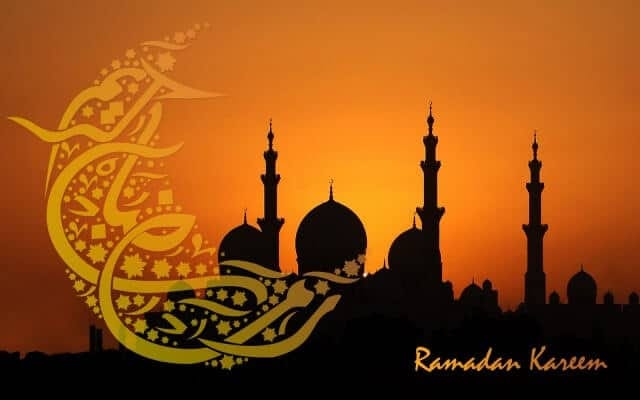Ramadan: what does it mean?
So it's Ramadan again, but what does that actually mean? Through living here in the UAE we do gain an insight into it, but it can be hard to fully comprehend a culture that is different to our own. I spoke to several people living in the UAE about what Ramadan - a very special time of year - really means to them.
What does Ramadan mean to you?
Khalid is Muslim and is a Saudi Arabian National:
These are spiritual days, helping me to improve and test myself by breaking bad habits, becoming a better contributor to humanity, fearing Allah, learning patience and controlling my desires.
And one more thing it’s time for family, for all of us together at one table to eat and to share everything happened during the day.
Zainab is Muslim, and a UAE National:
It’s a good time to forgive, to appreciate the Graces, remembering those who are less fortunate. Ramadan is a time to increase one’s Sabr (patience), and it’s also time to strengthen the bond between families and friends.
Ahmed is Muslim, and a UAE National:
A time for people (Muslims and non-Muslims alike) to calm down and reflect on their friends and families, their personal and professional lives, and their faith. We get too caught up in the daily grind and lose our sense of perspective of why we’re doing what we’re doing!
Zabila is Muslim and is from the UK:
Ramadan is not only a time where we truly appreciate what we have and think of all the people in the world who are less fortunate, but also a time families really come together! A time for you to reflect on yourself as a person, and think how and if, you have made a difference to the lives of the less fortunate. You feel the hunger and thirst of people in the world who do not have food to eat and water to drink - such a humbling experience.
What would you like non-muslims to know or understand about Ramadan?
Khalid: I wish them to know this is not a torturing for us in fact this will help us to feel for others - mostly poor people, when you see food and drinks but you cannot take it, this makes me remember and feel for the poor people when they need something but they cannot get it.
Zainab:
Some people are exempt from fasting - pregnant or breastfeeding mothers, elderly people, travellers, people who are seriously sick or have mental illnesses.
Ramadan means ‘scorched earth’ - coming from the Arabic root word ramiḍa or ar-ramaḍ which means extreme heat or dryness.
Charity is an important part of Ramadan.
Fasting, or sawm in Arabic, literally means 'to refrain' – and not only is it abstaining from food and drink but also actions such as smoking cigarettes, sex during the day, talking about others behind their backs, or using foul language.
Ahmed: Ramadan is a time that Muslims are more reflective of their faith, and with that non-Muslims should be respectful and appreciative of that. That means not openly talking about partying, drinking alcohol, and so forth. And very specifically, women being respectful in their manner of dress (clothes not too tight, shoulders and knees covered, limited perfume and make-up).
Zabila: I think it's important to understand the reason why we fast. It truly makes you more humble and appreciating of all the things you are fortunate enough to have. Children are not forced to fast! They do so because they REALLY want to! I remember being so excited as a child being 'allowed' to keep my first fast. Allah does not want true hardship for his people, so if you are medically unfit to fast you are exempt. Be kind and understanding to your fellow Muslim friends/colleagues as some people find it very difficult! If you can help them In any way, please do, they will see your effort and really appreciate it!
Rola is Christian and originates from Lebanon:
For non-Muslim friends I would like them to know that they have to be discreet in their clothing and while having lunch or drinking, so that they will not put the fasting people in an uncomfortable position. Fasting is related to having a pure mind without having temptation for food or being enticed by others.
Is there anything else you'd like to share about Ramadan?
Khalid: When Ramadan comes, the doors of Paradise are opened and the doors of Hell are closed, it’s a month of mercy.
Zabila: I love preparing Iftar for my family, I love going to the mosque with food to feed the poor during Iftar! No matter what you do, you cannot get this rewarding feeling any other time in the year. They call Ramadan the blessed month, and it really truly is! I completely feel blessed, Ramadan Kareem!
Ramadan Kareem to everyone!



